An immense portion of the Boston College community marched in solidarity to protest multiple racist incidents that occurred last weekend in a demonstration Friday called “Silence is Still Violence.”
Starting at 12 p.m., BC students and faculty marched from McElroy Commons to Corcoran Commons, displaying signs and chanting “Black Lives Matter.” Over 1,200 people marked that they would attend on Facebook, though attendance seemed closer to 2,000 or more.
While marching throughout campus and down Commonwealth Ave., forcing traffic to be redirected, students shouted a variety of chants, such as “No justice, no peace, no racism at BC.” One of the chants from students called on the fact that University President Rev. William P. Leahy, S.J., has not made a public statement on the issue. Many asked loudly: “Where is Leahy?”
University Spokesman Jack Dunn said Leahy is in California at Santa Clara University for a board of trustees meeting, which Dunn said has been on his schedule for months.
Provost and Dean of Faculties David Quigley was present at the march. He declined to comment on it specifically, but said he was there to give his support.
Other senior members of the administration, such as Vice President for Student Affairs Barb Jones and Dean of Students Thomas Mogan, spoke at the event.
“I’m pleased at how many students and faculty and staff have shown up and are contributing to this,” Jones said. “I think it’s a wonderful statement about how BC really does care. BC cares enough to keep working, to keep making it better.”
After marching down Commonwealth Ave., students and faculty congregated in front of Lower to give testimonies on their experiences with race at BC. They expressed strong sentiments against the bias-related acts and presented several demands for the University.
Akosua Achampong, UGBC president and MCAS ’18, laid out several demands students are making of the administration, including increasing the presence of faculty of color and LGBTQ+ faculty. Another demand is a campus climate survey to help BC assess its needs in resources and programming.
“The burden should not rest on we the students,” she said.
When Mogan came to the stage, the entire crowd bent down onto their knees, resembling the protests of Colin Kaepernick and many NFL players have done prior to games during the national anthem. He expressed the University’s commitment to including all students into the BC community.
“We have to care enough to make BC a community that is inclusive and welcoming to all, particularly students of color,” Mogan said.
He also called upon students to report violations of the Student Code of Conduct through BC’s Agora Portal. He further emphasized that he and Jones are accessible to students at all times.
Last Friday, two signs reading “Black Lives Matter” in Roncalli Hall were defaced to read “Black Lives Don’t Matter.” In addition, a Snapchat from a BC student showing a blackened steak and cheese with the caption “I like my steak and cheese like I like my slaves” spread across social media. Two sophomores also said a whiteboard outside their door that expressed support for the black and Latinx communities has been repeatedly erased.
Throughout the week, students expressed outrage over the events. About 200 students gathered on O’Neill Plaza on Monday evening to express their concerns, and hundreds participated in the “Walkout for Black Lives” on Wednesday.
But multiple events occurred on Friday morning that threatened the unity the rally attempted to foster. Two identical signs, each with a large image of Uncle Sam and text reading “I want you to love who you are / don’t apologize for being white,” were hanging on the campus map stand between Stokes Hall and Carney Hall.
Additionally, a Black Lives Matter sign on a student’s door was removed and another defaced in Gonzaga, as Matthew Razek, the Resident Director of Claver, Loyola, Xavier, and Fenwick Halls said in an email to residents Friday morning.
In a follow-up statement on the racist incidents, senior administrators not only encouraged students and faculty to attend the solidarity march, but also emphasized that BC will work to cultivate inclusivity in its new Strategic Plan. The crowd at the rally included at least two vice presidents of the University.
Despite words of support from administrators, some individuals are calling for the BC’s religious community to take a public stance. Ronald Porter, who students identified as Professor Porter, said he marched with Martin Luther King Jr. alongside Jesuit priests and nuns. He feels that BC’s Jesuit community has made a minimal response to these events.
Students also told stories about facing racism and hate on campus.
“I walk into the classroom, and I don’t know who hates me because of the color of my skin,” one student said.
Rev. Joseph Marchese, a longtime faculty member, said the issue lies on an individual basis among students and is not a student body-wide issue.
“What we’ve experienced is not general to the student body,” Marchese, the former director of First Year Experience, said. “Our students are not racist, and many of them understand that very nature of [BC] is to treat everyone with human dignity.”
BC’s student leaders propose engaging in dialogue about issues surrounding marginalized groups. Many speakers at the rally in front of Lower said they simply want to have a conversation with prejudiced individuals.
“Rather than focusing on the actual incident of racism, I’m asking student leaders and UGBC to focus on the culture that allows this racism to occur,” Aneeb Sheikh, a UGBC senator and MCAS ’20, said.
Based on the turnout, the BC community appears more motivated than ever to address racism on campus. Régine Jean-Charles, an associate professor in the romance languages and literatures department, encouraged students to channel all of their emotions into their activism and that doing so will create a world without hate.
“Don’t make this a moment, [because] it’s a movement,” she said. “The fact that it’s a movement means it does not end today, it does not end at the end of the month, it does not end at the end of the semester, at the end of the school year, [or] when you graduate and leave BC.”
Ines Maturana Sendoya, the director of the Thea Bowman AHANA and Intercultural Center, said this is one of the largest demonstrations for solidarity of black students that she has seen.
“I’m moved to see faculty, staff, and students from different communities,” she said. “My heart is singing just to see that.”
Featured Image by Lizzy Barrett / Heights Editor

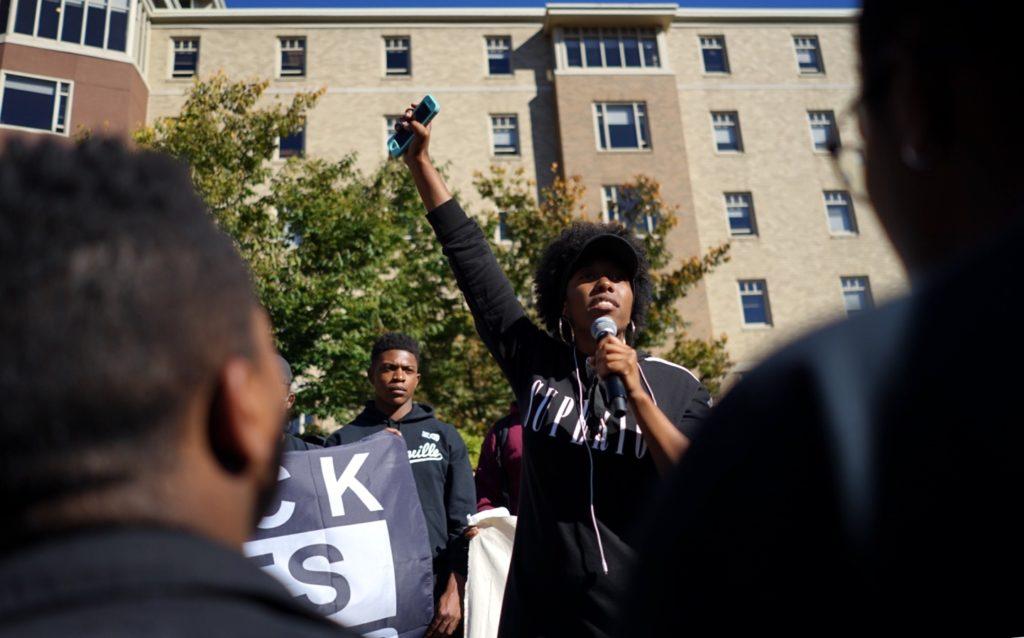

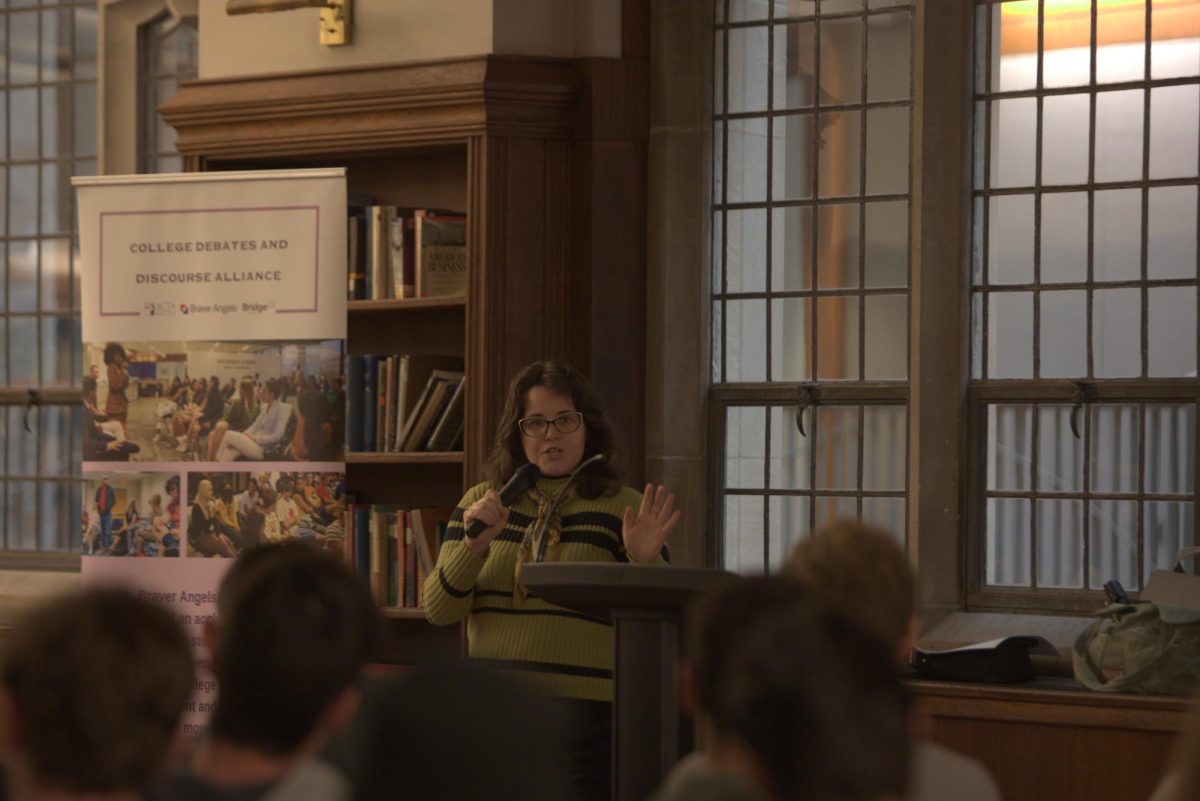




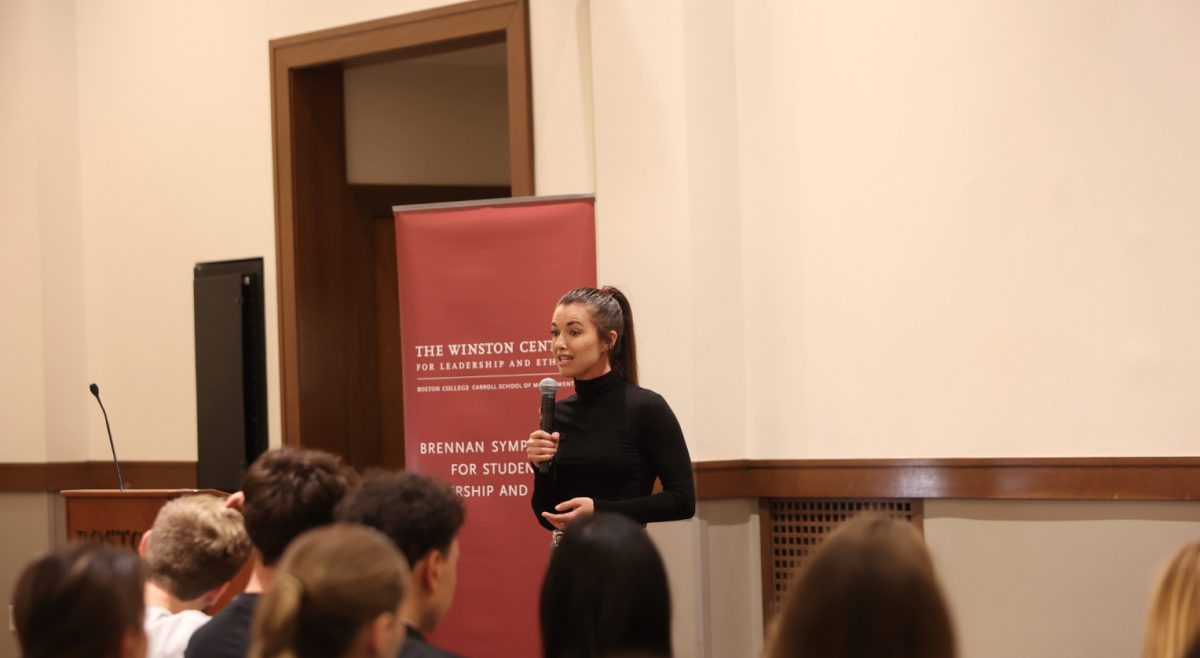
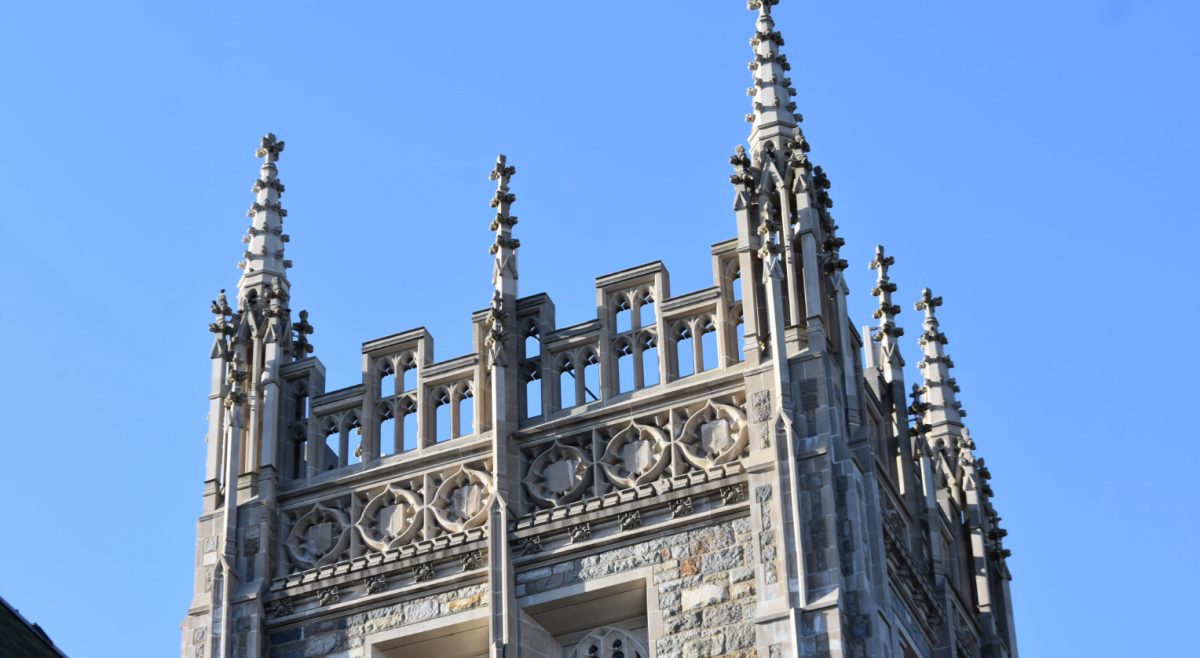
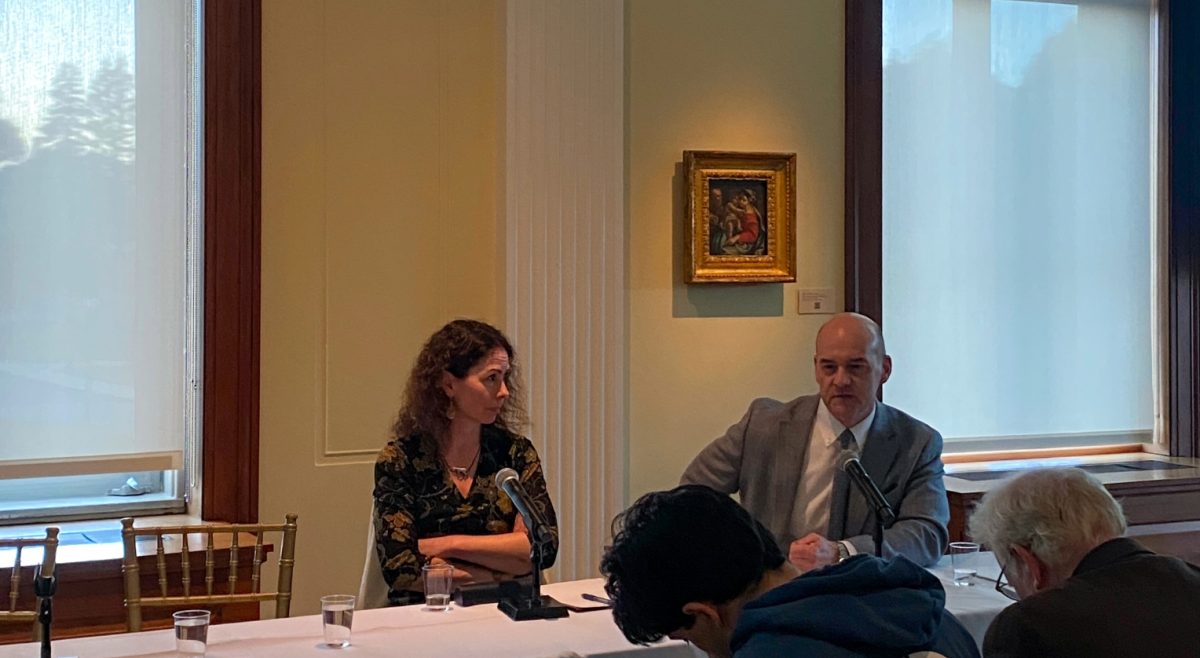

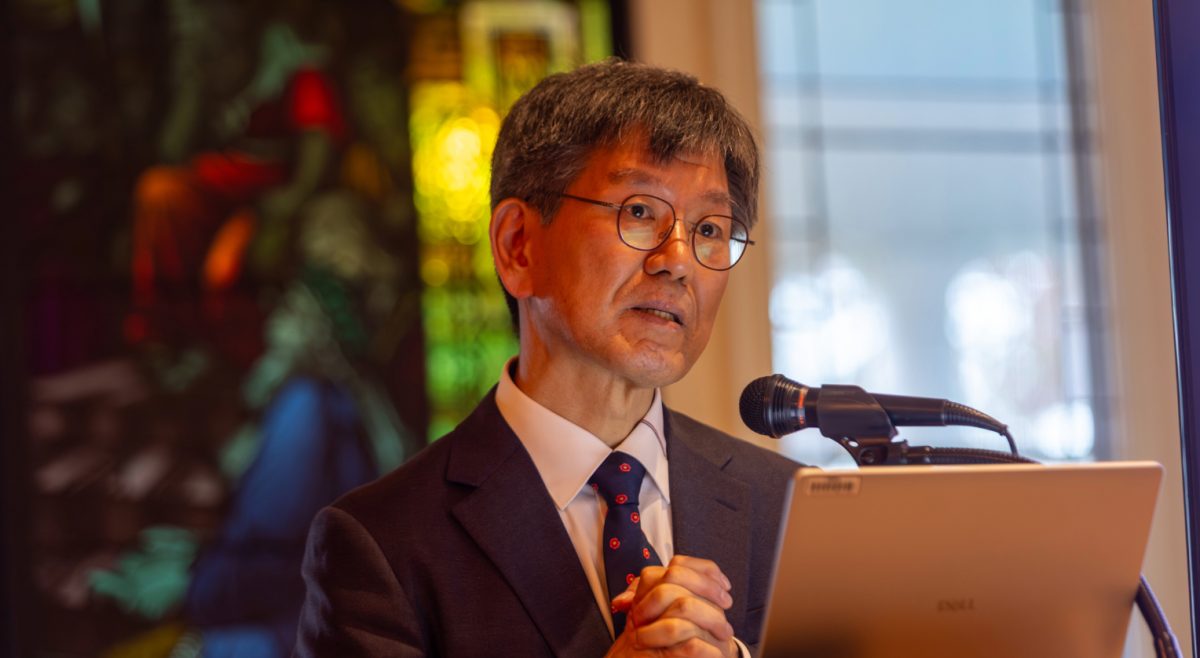


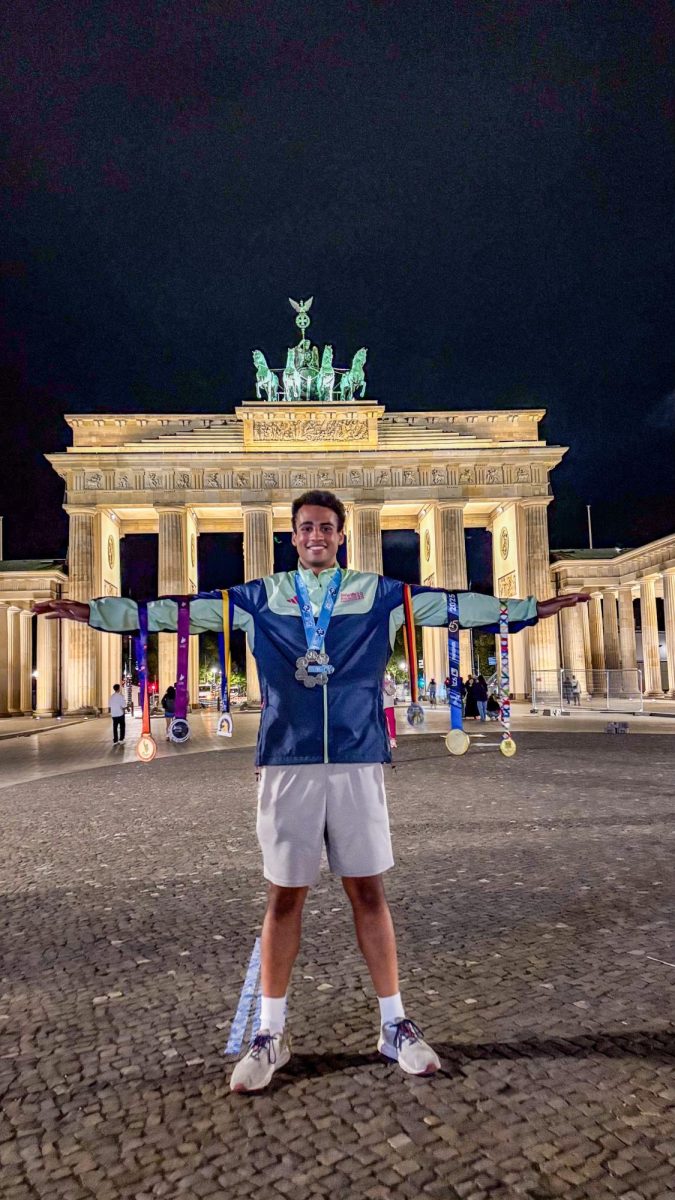
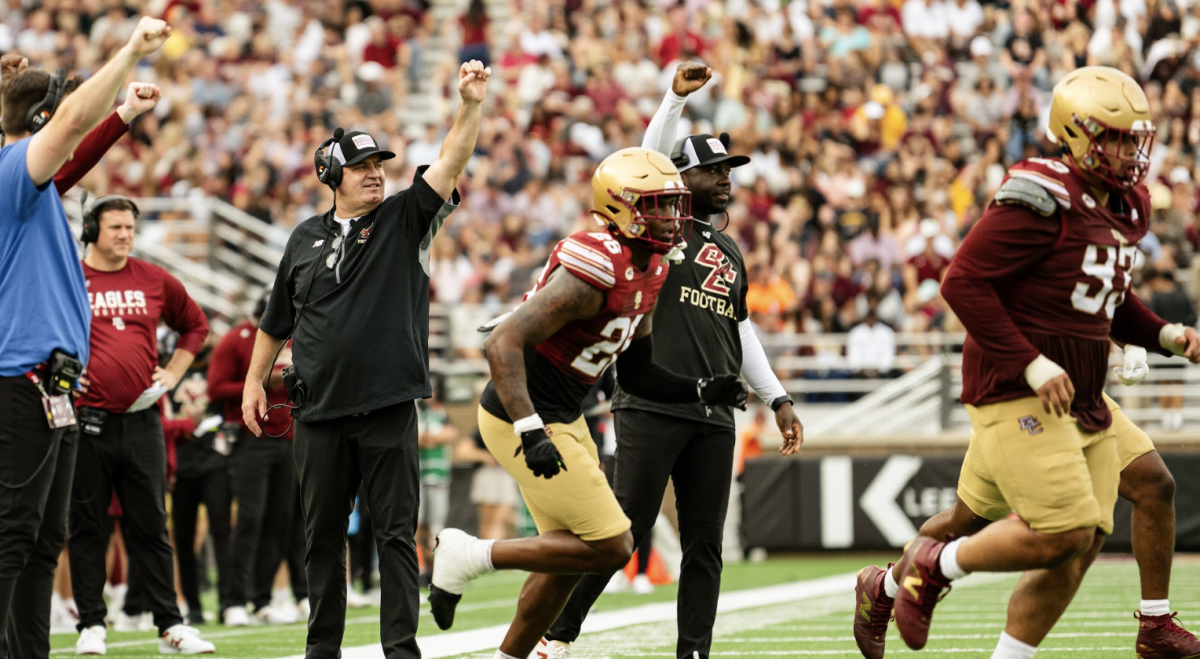
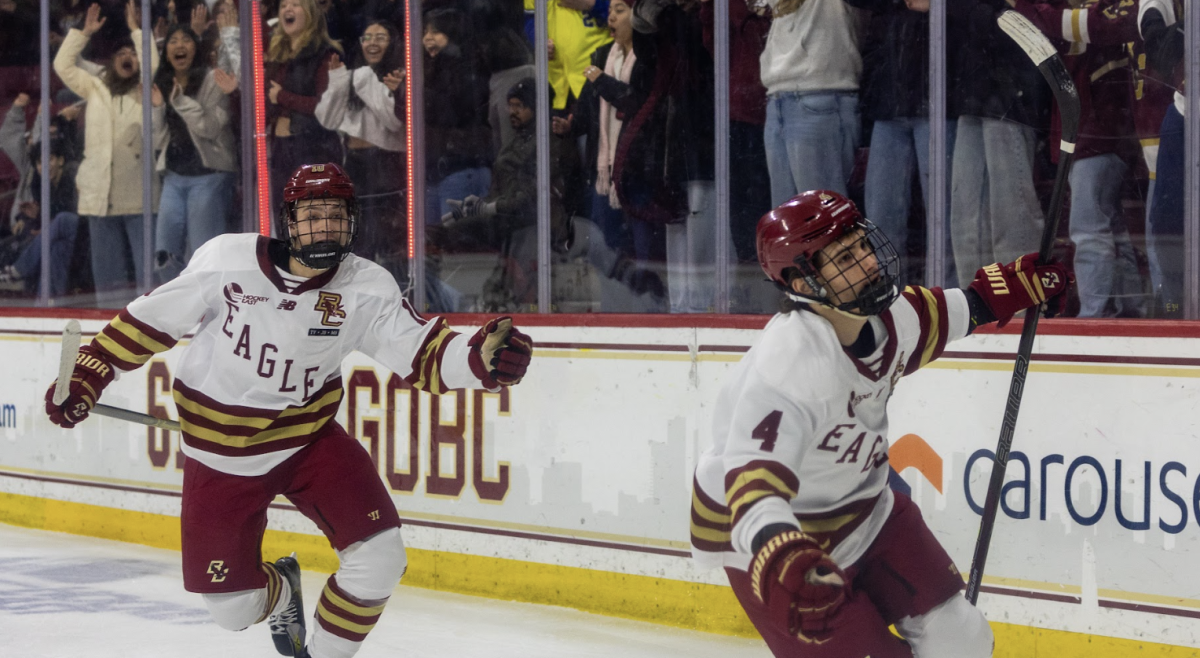

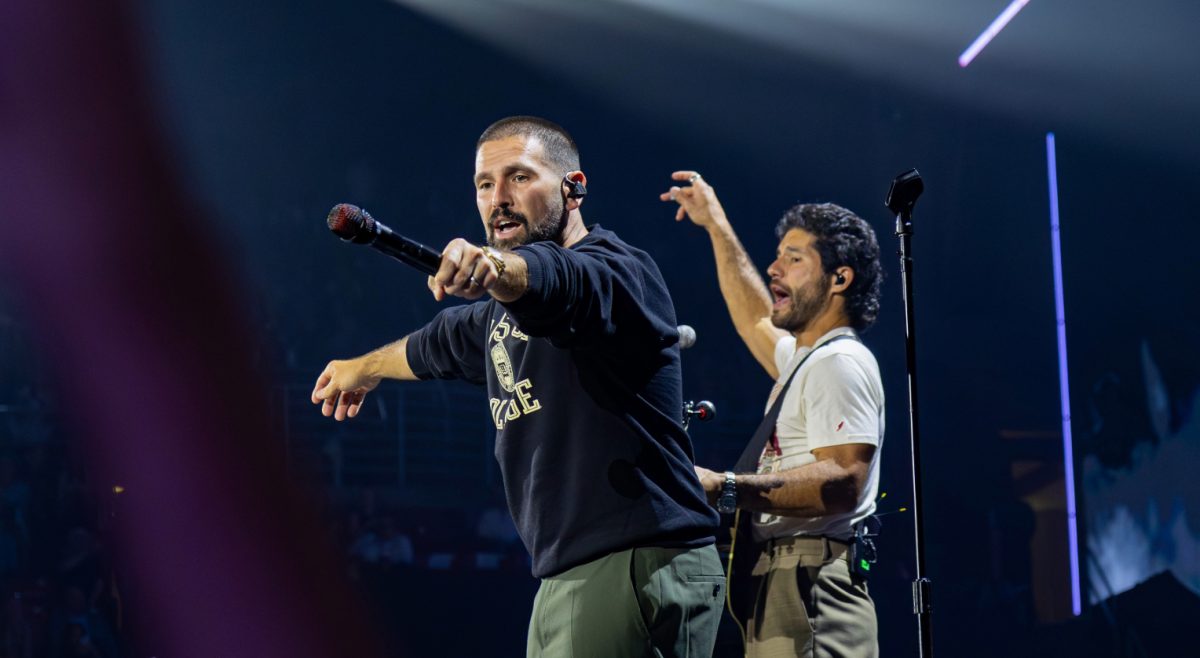
MonicaMichael • Oct 29, 2017 at 8:29 pm
There are worse things than racism.
LHathaway • Oct 23, 2017 at 6:38 pm
“Based on the turnout, the BC community appears more motivated than ever to address racism on campus”
Really . . .?
I guess that means creating a group like White United Students on campus, just one group, as a small start. A place where the White students at BC can involve themselves in an important conversation about racism, or whatever else is on their minds. No doubt, with all the concern shown, this will be done in no time. Because anything other than White United Student on campus is not tolerance, it is not diversity, it is not inclusion, in fact, oh dear, it is discrimination, racism, and hated – anything less than White United Students on campus is not equality.
No doubt, brave students will fix this in record time. Oh, any student could begin this. And that’s good, because this should be addressed. What I like about young students is their exceeding bravery . . . No fear of job loss. No fear of condemnation. No fear of causing waves on Facebook, no fear of the administration will stop them from fighting against naked hate.